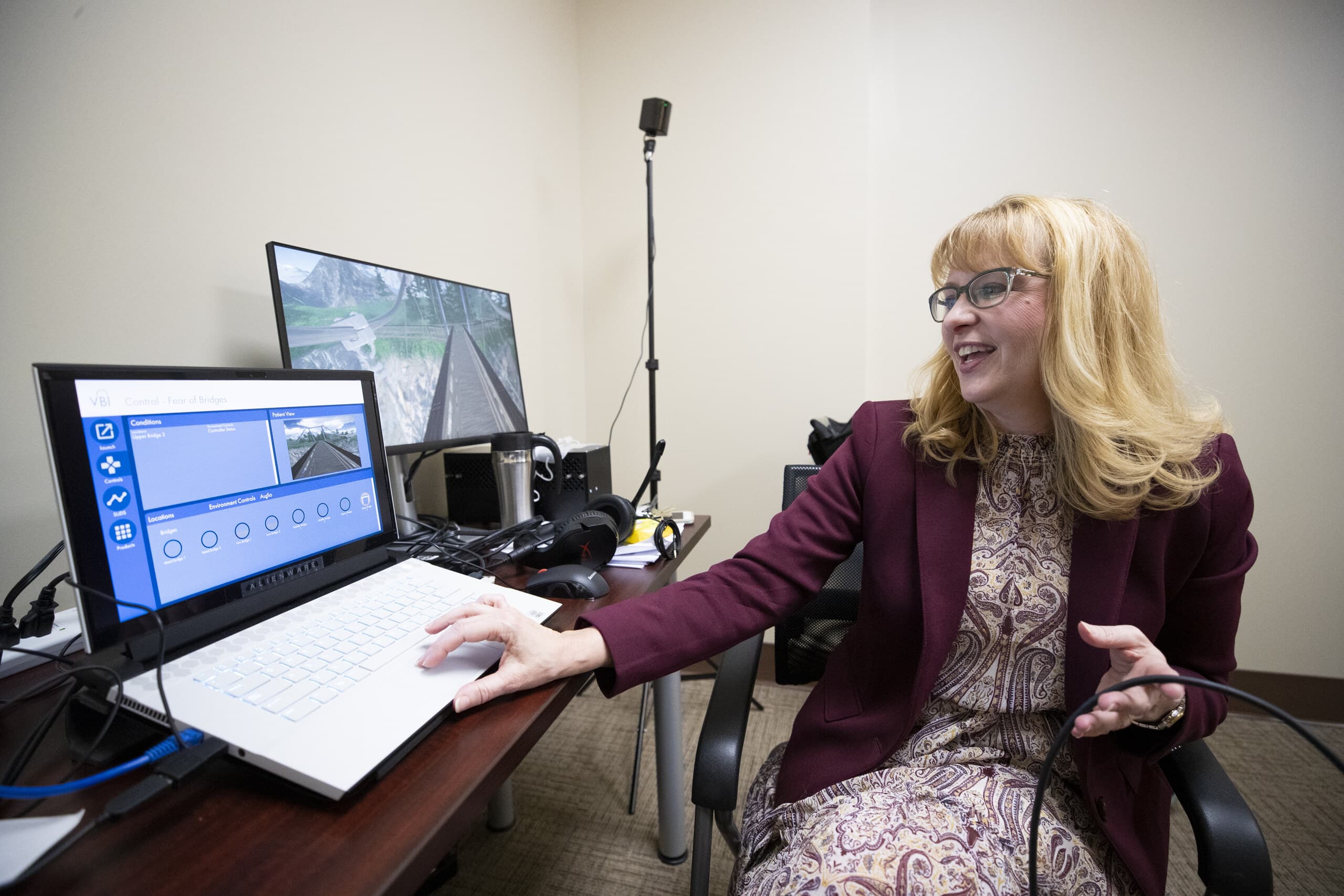
Virtual reality equipment will help with therapeutic treatment programs for mental wellness at Brenau University’s Lynn J. Darby School of Psychology and Adolescent Counseling.
Julie Battle, Ph.D., chair of the school, said the virtual reality programs provide treatment options and enhance research capabilities. Beyond Brenau, the technology also will offer services for the local community that may otherwise be inaccessible.
“Overall, our goal is to continue improving and expanding the services that we offer to community members as well as the experiences that we offer to students. This increases our visibility in the community and our ability to attract the best and most qualified applicants to our programs,” Battle said. “This, in turn, contributes to our long-term goal of increasing access to mental health care in our community.”
Many people associate virtual reality with video games, but Battle said this equipment features programs that tackle a host of mental health issues.
“The system includes programs to help people with issues including various phobias and addictions based on cognitive-behavioral theory and principles, with specific emphasis on exposure therapy,” she said.
Exposure therapy is a psychological treatment developed to help people confront their fears, according to the American Psychological Association.
Facing fears with technology
About 19 million Americans face varying degrees of phobias, or debilitating fears, according to Johns Hopkins Medicine. Battle said the phobias they tackle in the program include common ones like heights, spiders, flying, storms and public speaking.
“If virtual reality can help people overcome speech anxiety, so much the better,” Associate Professor of Mass Communication Kevin Mace said. Mace teaches speech courses at Brenau.
“If you were to ask 100 people what their greatest fear is, the majority would say public speaking without thinking about it,” Mace said. “People feel vulnerable and unsure of themselves when it comes to speaking in public. Speech anxiety exists in all of us, so I see it quite often at Brenau.”
Mace said while a little anxiety is normal in public speaking, but fear needs to be controlled, and virtual reality could help.
“Take audience size, for example,” he said. “Students can become acclimated slowly and in small increments, beginning with one listener, increasing to five listeners, then 10, and so forth.”
Real life treatment in a virtual experience
For those managing addictions, Battle said the system can address certain components of treatment.
“It includes virtual exposure to locations, scents, and characters that are related to relapse for some people,” Battle said.
The programs also include Bravemind, geared toward veterans experiencing post-traumatic stress, especially those who have completed tours in Afghanistan and Iraq. The program aims to reduce symptoms of PTSD.
Battle said the virtual reality system will provide more opportunities for Brenau faculty and students to conduct research. These academic activities are crucial for the master’s program in clinical counseling psychology and the forthcoming Doctor of Psychology program in clinical psychology, which begins in fall 2023.

